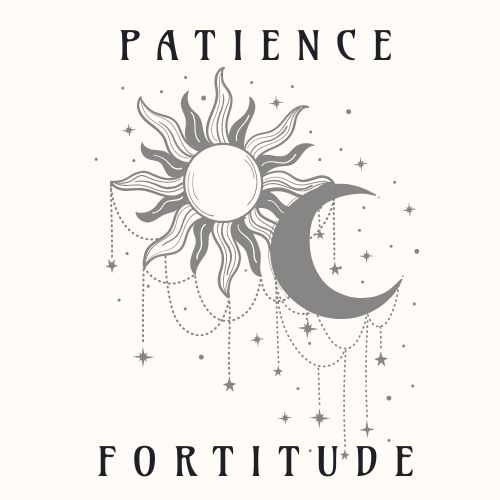Grief is a burden, all on its own. It is as heavy as bags of sand set down over our shoulders, numbing our senses until all we can feel is the weight we carry.
It’s said that time heals all wounds, but what is left off of that pithy aphorism is that wounds are painful, and the healing process is painful, and in the end you have a scar that is, itself, sometimes painful. The body heals wounds but does not forget them, and the healing process records the memory through pain. Shock will sometimes relieve us of the memory of a traumatic event, but the healing process will never let us forget it.
The faithful, then, are told to pray or wrap themselves in their faith to try and ease the agony that loss brings down upon us. For some people, that might even work. Yet, even among true believers of one faith or another, I have found people grieving who suffer intense, burning anger and almost unimaginable sorrow so overwhelming that feeling nothing is better. No sadness, no joy, no anger, no pleasure: grief protects us by cutting us off from what will hurt most; the unfortunate part is that includes the healing process itself.
When that happens, people get desperate. We all know that nature abhors a vacuum, and that is as true for our emotional state as anything else. Grief numbs us to protect us but that’s terrifying.
What happens then, in my experience, is that people grab for the nearest “proof of life” — things like alcohol, drugs, sex, or dangerous behavior. In this, religious communities fair no better than the atheist grievers I have known: people go down in flames, trying to feel human again without suffering the excruciating agony of grief. It’s a catch-22, there no way to feel alive, or experience joy, happiness, and pleasure, without also feeling pain, sadness, and anger. Cannot be done. Which is why we go to the artificial stimulants or the quick fixes (sex, sky diving), because at least a hangover can be cured or will go away quickly on its own.
This isn’t a problem, though. It’s really NOT. Having sex is not a bad thing; doing drugs or drinking alcohol is not a bad thing; and while I think you’re nuts for skydiving or sea cave spelunking, it’s not intrinsically a bad thing. These behaviors can turn unhealthy if unchecked for extended periods, resulting in addiction and sometimes death. Yes, that is a terrible long-term result to be avoided. But like getting morphine when you’re in the hospital recovering from a major injury or operation, these behaviors are sometimes the only tool we have left to fix ourselves with.
Which leads to one huge thing I hate about the culture of grief support (religious leaders, therapists, support groups, doctors), and that is how it is mired in the Judeo-Christian morality of judging behavior negatively based on random and often inconsistent standards. They refuse to look at behavior like this as anything but harmful, mostly because someone once decided that such actions were morally bankrupt. (Okay, skydiving isn’t morally bankrupt by anyone’s standards, but the idea of risking your life for nothing more than an adrenaline rush is frowned upon, so mox nix).
I turned into a raging slut after my mother died, I cannot even tell you how many people I had sex with but it’s in the triple digits, and it was awesome. I had a great time. You will never convince me that there was anything bad about that other than the few times when I combined drinking and unprotected sex. That was a stupidly dangerous risk for my health, and therefore, “bad,” but the sex itself? The rampaging path of sexual liberation I took through the Orlando club scene of 1994-1995? Nothing bad about that at all.
Grief makes us desperate. It’s a natural protection, but like morphine it numbs indiscriminately. People who are grieving are caught in the strange no-where land of being too damaged to process emotions in a healthy way yet needing to find an outlet for them the same time. How can our choices be anything but twisted and reckless and sometimes painful, dangerous? How is that anything other than a part of the healing process?
The judgmentalism over those kinds of behaviors, claiming they are “bad” outlets for grief, leads back to this romanticized perception that grief is soft and sad, when it’s really all about spiked rage and jagged horror. People are only supposed to act out by crying a lot—no one likes a snotty crier but it is at least socially acceptable, something people can feel sorry about without feeling threatened by it. As a griever, you aren’t supposed to be angry at the person who died, you aren’t supposed to act irresponsibly, you aren’t supposed to let your feelings show or drag on too long. Most of those rules, though, are for the sake of those around you – they do nothing to support the person who is too numb to cry.
Labeling those kinds of reactions as bad or unhealthy out of the gate is a terrible thing to do, though. We don’t need to judge people who are in the midst of the turmoil, we should not add to their burdens by layering on our restrictive expectations of what grief should be in polite society.
I guess the difference between my perspective and that formed by the Judeo-Christian idea of black/white, right/wrong grief is that I think people need a chance to recover on their own terms before being labeled as failures.
